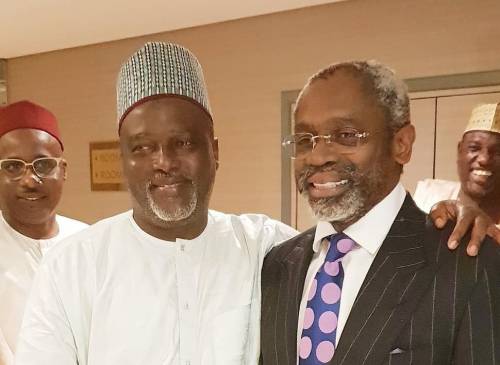There are no products in your shopping cart.
| 0 Items | £0.00 |


NIGERIA'S House of Representatives has tendered an apology to the country's 15m strong diaspora for rejecting a recent petition by the Mutual Union of Tivs in America (Muta) after its deputy speaker Hon Idris Wase said diasporans should have no say in running Nigeria.
On March 10, Hon Mark Gbillah, the lawmaker representing Gwer East-Gwer West Constituency of Benue State, attempted to submit a petition filed Muta condemning the killing of Tivs in Benue, Taraba and Nasarawa states. However, the petition was rejected by Hon Wase, who was president overt the House in place of speaker Hon Femi Gbajabiamila.
According to Hon Wase, Nigerians who sit in their comfort zones abroad are not eligible to file petitions against the federal government on issues regarding insecurity. His comments have sparked widespread anger across the diaspora that remits $25bn back to Nigeria annually and Hon Abike Dabiri-Erewa, the chair of the Nigeria Diaspora Commission has written to Hon Gbajabiamila asking for clarification.
In a clear sign that many lawmakers do not agree with Hon Wase's position, Hon Tolulope Akande-Sadipe the chair of the House Committee on Diaspora has tendered an apology to the diaspora. She assured diasporans that the House was working on the petition by the Tiv group over the alleged injustice their people have suffered.
Hon Akande-Sadipe said: “Your numerous petitions and messages have been well received by me and compiled and the petition is being investigated by the leadership of the House and its diaspora committee. This issue is of utmost importance to the House and it will be resolved in a matter of days.”
Even though there is video evidence showing he rejected the petition, Hon Wase had denied doing so. He defended his refusal to allow Hon Gbillah to submit the petition based on the legal identity and on the locus of the petitioner and not on whether Nigerians in diaspora have a right to petition the House or not.
In the petition, Muta had raised concerns over the plight of the Tiv people whose ancestral lands had been taken over by killer herdsmen, forcing them into internally displaced persons (IDP) camps for years. Hon Wase, however, insisted that the petitioners must follow laid down rules and procedures in presenting the petition to the House.
He added: “As a rule, every petition must be presented by a sponsor on behalf of an identifiable petitioner who can either be an individual/groups of individuals or registered corporate entity. In the current incident, the sponsor of the petition read the petitioners as Association of Tivs Resident in the United States.
“For any experienced parliamentarian, this very coinage raises a lot of technical questions. Are the petitioners represented here in Nigeria via a Nigerian office or a legal practitioner or are they totally absent from the scene?
“Are they registered as an association with the Corporate Affairs Commission? If they are absent and a hearing were to be organised, who would the members of the committee on public petitions be addressing, questioning or interrogating?
“Would the petitioners be able to give first hand witness testimony as to the issues raised in their petition? These and other technical complications were what I tried to interrogate, to which sufficient answers were not provided thus stalling the presentation of the petition.”
Reiterated the commitment of the House to promote freedom of speech and associations, Hon Wase said it will continue to provide platforms for all Nigerians, irrespective of their religion, tribe, or residence. He noted that media report of the matter had been doctored, slanted and bent to give political and ethnic coloration to an event that was otherwise strictly based on the rules of parliamentary procedures.